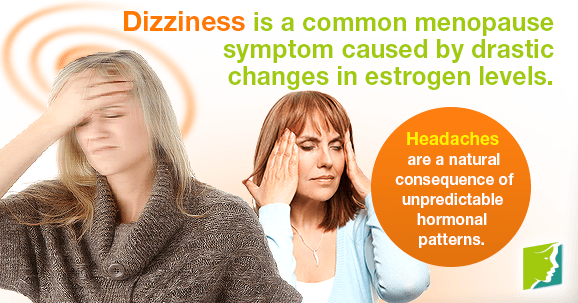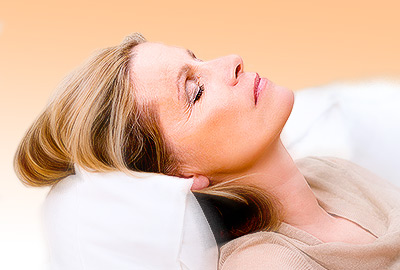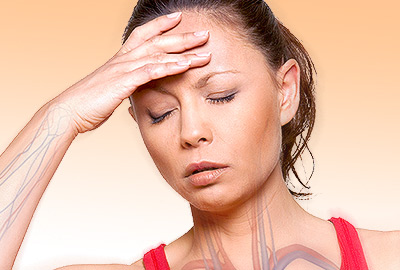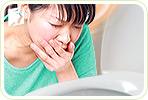Menopause is the transition in a woman's life when her periods stop and she ceases to be fertile. This normally happens between the ages of 45 and 55. This time of life is often accompanied by months or even years of uncomfortable and distressing symptoms, which tend to ease off after menopause proper, 12 consecutive months since the last menstrual period. Some people might experience dizziness and headaches and wonder if they are normal symptoms of menopause. Read on to find out more about how common these symptoms are.

What Causes Menopause Symptoms?
Menopause symptoms are caused by an interruption in the balance of the female sex hormones, estrogen and progesterone. These hormones regulate the menstrual cycle and fertility, but at a certain point, production gets ready to decrease. Unfortunately, this decrease does not happen uniformly; hormone secretion will go up and down erratically and this is what causes the symptoms, including dizziness and headaches.
Common Symptoms of Menopause
Because each woman's hormonal situation will be different, there is no telling which symptoms are going to be experienced and how often or severely they are going to occur. In addition, length of time can be variable; for example, some women may have symptoms for five years, whereas others for only a few months prior to the completion of menopause.
Dizziness
Dizziness is a common menopause symptom, and is normally experienced as a feeling of unsteadiness and loss of balance. It can feel like the room is spinning, and attacks can come suddenly or unexpectedly. Drastic decreases in the levels of estrogen can be blamed for this. Dizziness will tend to disappear in postmenopause.
Headaches
As one of the leading causes of headaches are hormonal shifts, it makes sense that it is a frequently-reported symptom of menopause. In many cases, headaches and migraines are a natural consequence of unpredictable hormonal patterns, and they can range from mild to severe.
How to Deal with Dizziness and Headaches
However, dizzy spells are not solely the fault of estrogen, there are certain lifestyle factors that can increase the likelihood of them occurring. Triggers include certain medications, irregular blood pressure, dehydration, alcohol, and tobacco. Avoiding these or getting them under control (in the case of irregular blood pressure) should reduce the frequency of attacks. However, if an attack is already occurring, the most important thing is to avoid falls and injury; sit or lie down until you feel it pass. If the attacks become very frequent, consult a doctor.
Likewise, a regular painkiller will be sufficient to deal with the headaches brought on by menopause, but it might also be worth dealing with the root cause, too. To reduce a number of hormonal fluctuations, it helps to exercise at least 30 minutes a day and eat plenty of fiber. Dizziness and headaches are uncomfortable - but not uncommon -symptoms of menopause, so experiencing them is not usually a cause for concern, especially if they are related to hormonal fluctuations. Making simple lifestyle changes and knowing how to deal with them and when they occur are normally sufficient methods of treatment for dizziness and headaches.
Sources
- Love, S. & Lindsey, K. (2003). Dr. Susan Love's Menopause & Hormone Book. New York: Three Rivers Press.
- National Health Service UK. (2013). Hormone headaches. Retrieved November 5, 2014, from http://www.nhs.uk/Livewell/headaches/Pages/Hormonalheadaches.aspx
- National Health Service UK. (2014). Menopause. Retrieved November 5, 2014, from http://www.nhs.uk/conditions/Menopause/Pages/Introduction.aspx
- The North American Menopause Society. (n.d.). My-Oh-Migraine: Hormonal Headaches & Menopause. Retrieved November 5, 2014, from http://www.menopause.org/for-women/menopauseflashes/my-oh-migraine-hormonal-headaches-menopause



